Discover the biblical mysteries hidden within Turkey's ancient lands, where history and faith intertwine in tales yet to be fully unveiled.
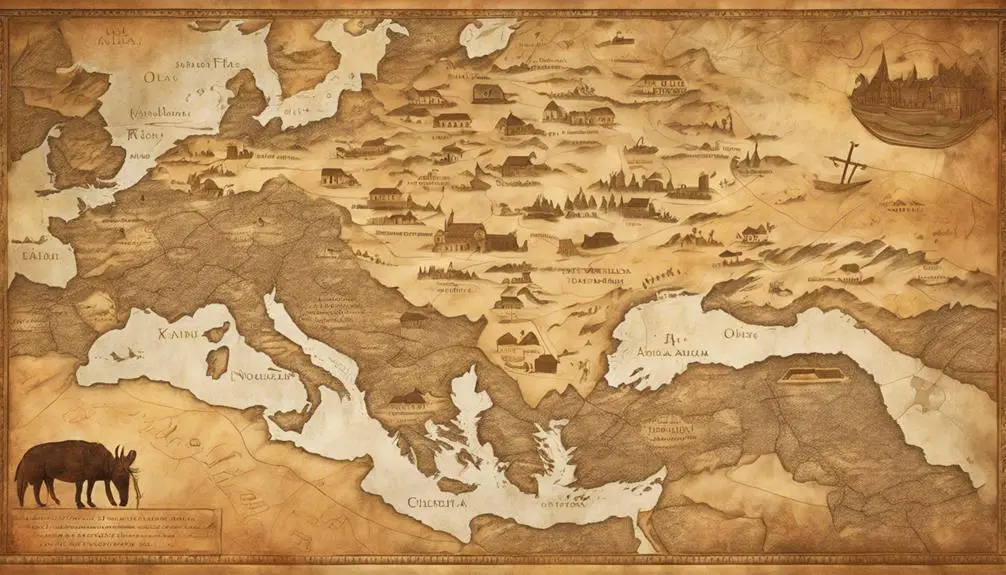
What Was Turkey in the Bible
Just as Troy once beckoned adventurers with its legendary walls, the lands of modern-day Turkey hold tales of biblical proportions that you might not have fully explored. From hosting the apostle Paul's transformative journeys to being the backdrop for the enigmatic Seven Churches of Revelation, this region's biblical significance is as rich as it is spiritually profound.
You'll find that the battles fought and prophecies uttered in these ancient terrains are intertwined with the very fabric of faith narratives. So, let's embark on a journey to uncover the layers of history and mystery that Turkey contributes to the Bible, inviting a deeper appreciation for this historic crossroads.
Key Takeaways
- Turkey housed the Seven Churches of Revelation, crucial to early Christianity.
- The Hittite civilization in Turkey influenced biblical events and narratives.
- Paul's missionary journeys in Turkey significantly shaped early Christian teachings.
- Prophetic visions and messianic predictions were deeply rooted in ancient Turkey.
Ancient Lands Defined
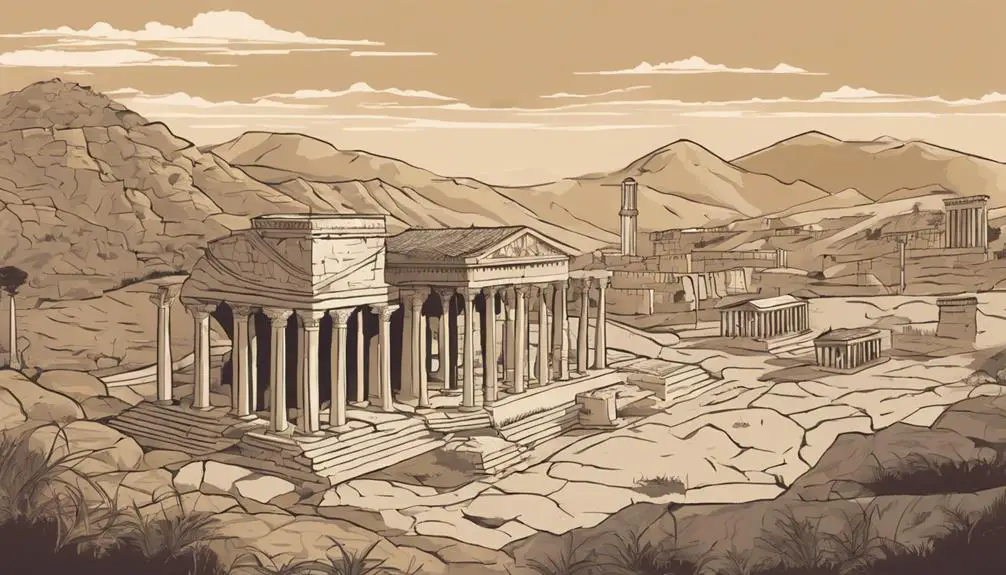
To understand Turkey's role in the Bible, it's essential to first define the ancient lands that now comprise modern-day Turkey. You're looking at a region steeped in biblical history, yet not directly named in the scriptures. The territories of Asia Minor, as it was known, played host to various civilizations, each contributing to the biblical narrative in distinct ways.
The Hittite Empire, for example, is a crucial piece of this puzzle. You'll find references to the Hittites in the Old Testament, indicating interactions with the Israelites. The Hittites, with their capital in what's now modern Turkey, were a formidable force in the ancient Near East. Their presence and political dynamics significantly influenced the surrounding regions, including lands and peoples mentioned in biblical accounts.
Moving forward in history, the emergence of Byzantine Christianity marks another key era tied to this geography. After the decline of the Roman Empire, the Byzantine Empire flourished, with Constantinople (modern-day Istanbul) as its capital. This period saw the solidification of Christian doctrine and the spread of Christianity throughout the region and beyond. The early Church Fathers, many of whom were active in the areas now within Turkey, were instrumental in defining Christian theology. The theological debates and councils that took place in this region, such as the Council of Nicaea, shaped Christianity's development in profound ways.
The Journeys of Paul
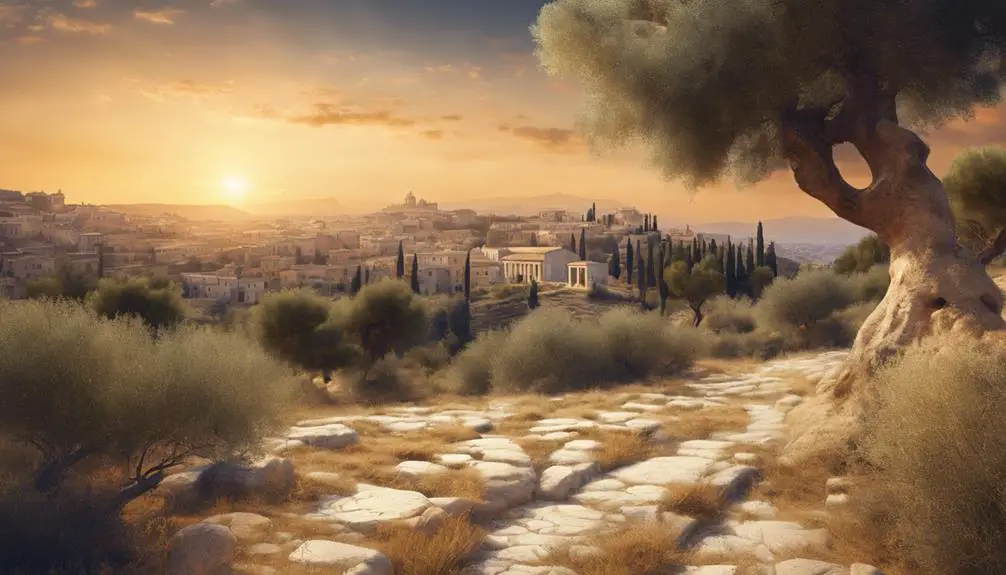
One can't explore Turkey's biblical significance without delving into the journeys of Paul, whose missionary travels across Asia Minor profoundly shaped early Christianity. You'll find that his strategic approach to spreading the Christian faith was as varied as the regions he traversed. Paul's missionary strategies were deeply rooted in his understanding of the diverse cultures and political landscapes of the areas he evangelized, particularly within what's now modern Turkey.
Paul's travels through Asia Minor weren't without peril. Among the most dramatic events recorded in the Acts of the Apostles is Paul's shipwreck on his way to Rome, a testament to the dangers early Christians faced while spreading their faith. This incident, while occurring outside Turkey, underscores the resilience and dedication of Paul and his companions in their missionary efforts.
In Asia Minor, Paul focused on key urban centers, which were cultural and economic hubs, understanding that converting influential cities could have a cascading effect on the surrounding regions. His journeys through cities such as Antioch, Ephesus, and Galatia highlight his methodical approach to evangelism, targeting areas where he could establish a strong Christian presence that would endure long after his departure.
Paul's missionary strategies in Turkey were characterized by adaptability, courage, and a profound commitment to his faith. His work laid the groundwork for Christianity's expansion beyond the Jewish communities and into the Gentile world, making his journeys through Turkey a pivotal chapter in the history of Christianity.
Seven Churches of Revelation

Building on the foundation laid by Paul's missionary journeys, the Seven Churches of Revelation emerge as pivotal entities in Asia Minor, profoundly shaping the Christian narrative and faith practices in the region. These churches, identified in the Book of Revelation, aren't just historical landmarks but carry deep church symbolism and spiritual significance that resonate through centuries.
The Seven Churches—Ephesus, Smyrna, Pergamum, Thyatira, Sardis, Philadelphia, and Laodicea—each received a message that, while specific to their context, encapsulates timeless lessons for the broader Christian community. Here's what they symbolize:
- Ephesus: The importance of maintaining one's first love for Christ, warning against spiritual complacency.
- Smyrna: Encouragement in persecution, symbolizing the victory of faith over suffering.
- Pergamum: The challenge of remaining true to faith in a corrupting environment, resisting doctrinal compromise.
- Thyatira: A call to uphold moral integrity, warning against spiritual seduction and idolatry.
These messages carry a dual layer of meaning—addressing both the immediate concerns of the early Christian communities and offering enduring guidance for believers. They underscore the necessity of vigilance, perseverance, faithfulness, and repentance in the Christian journey.
Analyzing these churches' roles and the messages conveyed to them provides insights into the early Christian struggles and victories. The Seven Churches of Revelation stand as beacons, their spiritual significance extending beyond their historical context to offer lessons on faithfulness, endurance, and the dangers of spiritual apathy to contemporary believers.
Biblical Battles and Territories
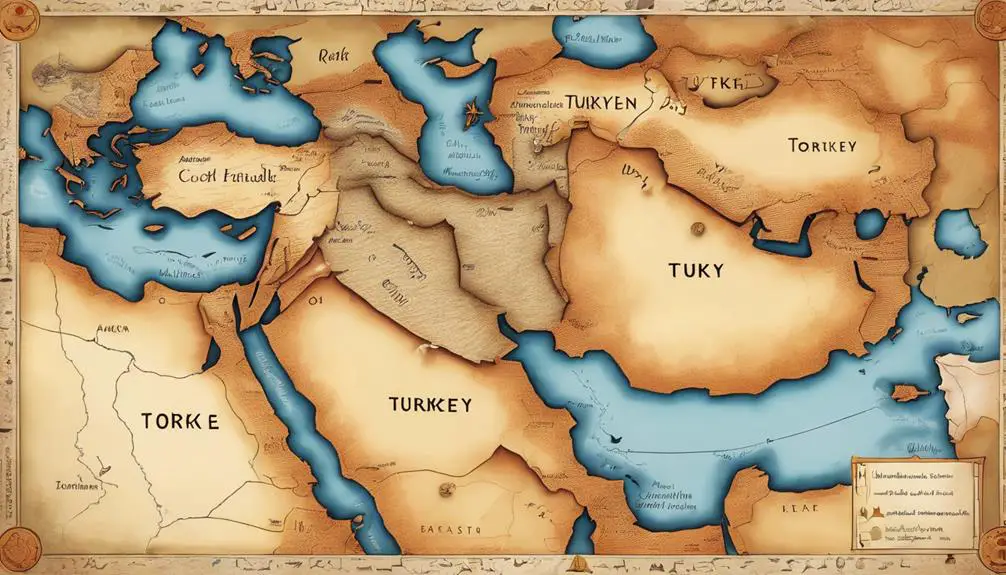
Throughout the biblical narrative, various battles and territorial disputes serve as critical junctures, shaping the faith and identity of the people involved. The land that's now Turkey was once a stage for such historical and scriptural events. It's intriguing to see how this region, rich with ancient civilizations, played a pivotal role in the unfolding biblical saga.
The Hittite Empire, which at its zenith covered much of Anatolia, is frequently mentioned in the context of these ancient conflicts. You'll find references to this empire not just as a formidable force but also as part of the complex political and military landscape of the time. The Hittites were known for their advanced military strategies and technologies, which they employed in battles that often included or affected the people of the biblical narrative. This empire's interactions, whether in conflict or in alliance, with the Israelites and neighboring states significantly influenced the course of regional history.
Similarly, the Assyrian campaigns across the Near East left an indelible mark on the region. These campaigns, characterized by their ferocity and the Assyrians' military prowess, had profound implications for the territories that now fall within modern-day Turkey. The Assyrians' expansionist policies led to the conquest of vast territories, bringing them into direct conflict with the peoples and kingdoms of the Bible. Their military expeditions, which are well-documented in both biblical and Assyrian records, serve as a testament to the turbulent times that shaped the ancient Near East.
In analyzing these events, you're not just looking at isolated incidents but at a mosaic of interactions that defined an era. The biblical battles and territorial disputes in what's now Turkey were more than mere footnotes in history; they were significant episodes that influenced the spiritual and cultural landscape of the time.
Prophecies and Prophets
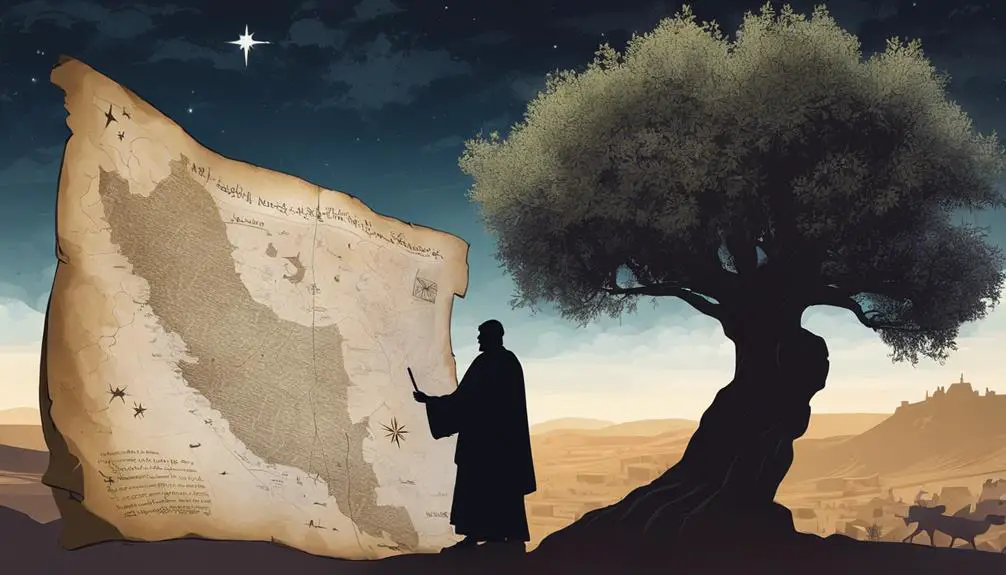
Prophecies and prophets often emerge at pivotal moments in history, shaping the spiritual landscape of regions, including what's now known as Turkey, through their divine messages and foretellings. The area's biblical history is rich with prophetic visions and Messianic predictions, which haven't only guided the people of their time but have also left a significant mark on the faith and traditions of generations that followed.
- Messianic Predictions: Turkey, as part of the ancient world, was a backdrop for several prophecies concerning the coming of the Messiah. These prophecies, deeply embedded in the religious texts, provided hope and a future outlook for the believers amidst their trials and tribulations.
- Prophetic Visions: The prophets who walked these lands were gifted with visions that transcended their present realities. They spoke of events, both calamitous and redemptive, that would unfold, significantly impacting the course of history and the spiritual evolution of the region.
- Guidance for Nations: Through these prophetic messages, nations were guided on a path of righteousness. Leaders and common folk alike were admonished, encouraged, or warned, influencing the moral and ethical decisions of the time.
- Legacy of Faith: The legacy of these prophets and their prophecies has endured, fostering a deep-rooted faith that continues to influence the region's cultural and spiritual identity.
In analyzing these aspects, it's evident that the prophets and their prophecies played a crucial role in shaping the spiritual heritage of what we now recognize as Turkey. Their messages of hope, judgment, and redemption remain integral to understanding the biblical significance of this ancient land.
Archaeological Discoveries
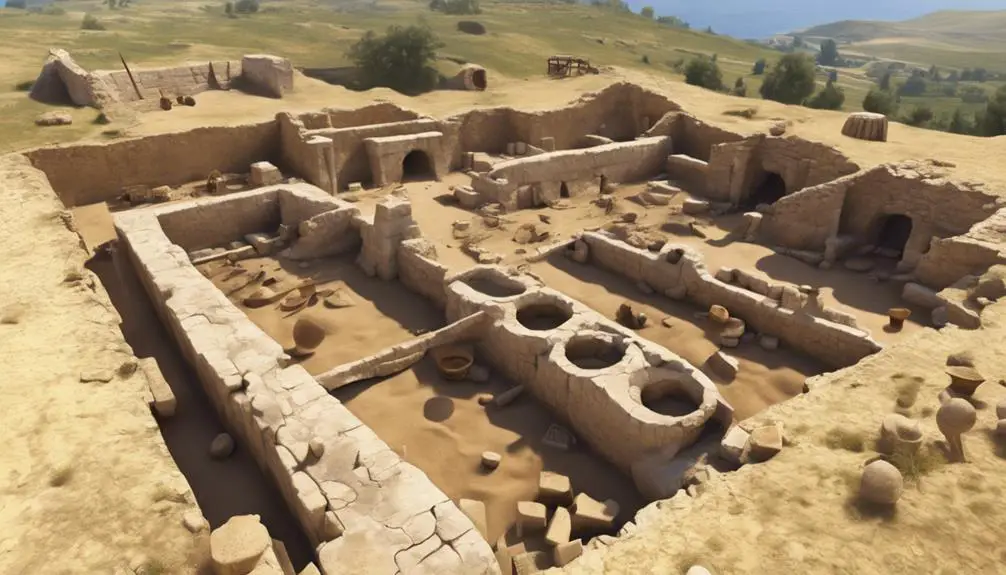
Recent archaeological findings in Turkey have unearthed artifacts and structures that shed new light on the biblical narratives and prophecies linked to this ancient region. You'll find that these discoveries not only validate historical records but also provide a tangible connection to the stories and people of the Bible.
Discovery |
Location |
Significance |
|---|---|---|
Hittite Inscriptions |
Central Anatolia |
Confirmed the existence of the Hittite civilization, once thought to be purely mythological within biblical contexts. |
Alleged Noah's Ark Remnants |
Durupınar Site |
Sparked debates about the physical existence of Noah's Ark, aligning with the biblical tale of the great flood. |
Ancient Churches |
Antioch |
Offer insights into early Christian communities, reflecting the spread of Christianity through Asia Minor. |
Royal Tombs |
Gordion |
Provided evidence of the Phrygian kingdom's wealth and cultural influence, indirectly corroborating accounts of similar kingdoms mentioned in the Bible. |
These findings, particularly those related to the Hittite civilization, have transformed scholars' understanding of ancient Near Eastern history. The Hittites, mentioned in various biblical passages, were once a powerful empire that interacted with biblical figures and nations. The discovery of their inscriptions and the capital at Hattusa gives credence to their significant role in biblical history.
Similarly, the controversial site believed by some to contain remnants of Noah's Ark at Durupınar has sparked immense interest. While definitive proof remains elusive, the site's examination feeds into the broader conversation about the confluence of faith, history, and archaeology.
Each archaeological discovery in Turkey invites you to reconsider the intersection of biblical narratives with historical and cultural realities, illustrating the complex tapestry of human history entwined with the sacred texts.
Frequently Asked Questions
How Did the Dietary Habits and Foods Mentioned in the Bible Relate to the Region Now Known as Turkey?
You're exploring how biblical dietary habits and foods connect to modern-day Turkey. This region, crisscrossed by ancient trade routes, was a melting pot of culinary techniques and ingredients.
These routes facilitated the exchange of goods and culinary ideas, influencing the local diet significantly. From grains to fruits mentioned in the Bible, the area's fertile lands were ideal for growing a variety of foods that became staples in biblical times.
What Role Did the Languages Spoken in Ancient Turkey Play in the Translation and Spread of the Bible?
In the tapestry of history, languages are the threads binding cultures.
The linguistic diversity in ancient Turkey was a crucible for translation techniques, crucial for the Bible's spread.
This diversity acted as a bridge, allowing the sacred text to transcend linguistic barriers and reach a wider audience.
Your understanding of these ancient tongues and their role in biblical translations unveils the profound impact of linguistic diversity in shaping religious discourse and dissemination.
How Have Modern Religious Practices in Turkey Been Influenced by Its Biblical History?
You'll find that modern religious practices in Turkey are deeply influenced by its biblical history. The country's rich past is reflected in its church architecture and pilgrimage sites, drawing both worshippers and tourists alike.
This blend of history and faith enriches the spiritual landscape, making it unique. Whether it's the design of religious buildings or the reverence for sacred locations, Turkey's biblical roots are woven into the fabric of its contemporary religious expression.
Are There Any Biblical Festivals or Holidays That Originated From the Region Now Known as Turkey?
Yes, some biblical festivals and holidays have roots in what's now Turkey, particularly through Paul's Journeys and interactions with Ephesian believers. When Paul visited Ephesus, his teachings and the local Christian community's practices likely influenced the development of certain Christian observances.
These traditions, deeply embedded in the early Christian church, have evolved over centuries but trace back to these foundational moments and locations, showcasing Turkey's significant role in early Christian history.
How Did the Changing Political Landscapes of Ancient Turkey Impact the Religious Narratives and Characters of the Bible?
Think of ancient Turkey as a stage where the drama of history unfolds, impacting the Bible's narrative. The changing political landscapes, marked by military conquests and evolving trade routes, shaped religious stories and characters deeply.
These shifts influenced how communities interacted, merged, and shared religious ideas, directly affecting the biblical text's development. Analyzing these transitions provides insight into the Bible's rich tapestry of spiritual and historical contexts.
Conclusion
You've traversed through the annals of time, where ancient lands once thrummed with the footsteps of Paul, and the air whispered tales of prophecies.
In the cradle of civilization, the Seven Churches stood as beacons amidst the tempest of biblical battles. Here, archaeology breathes life into dust, revealing truths long buried.
This journey through Turkey's biblical landscape showcases a tapestry of faith and history, interwoven with the threads of spiritual quests and earthly discoveries.

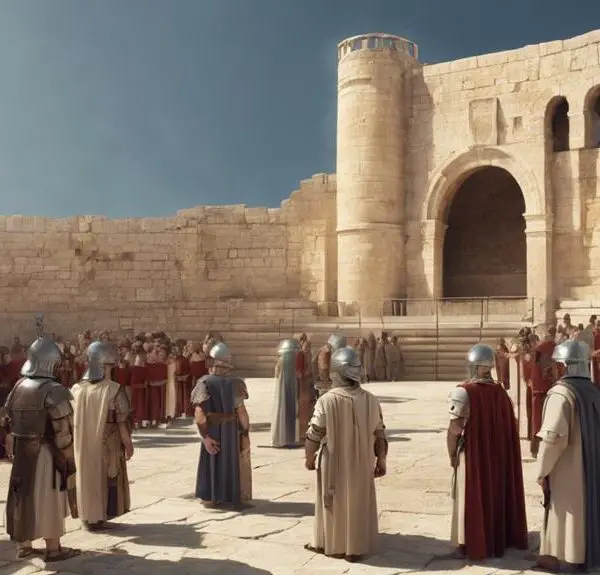

Sign up